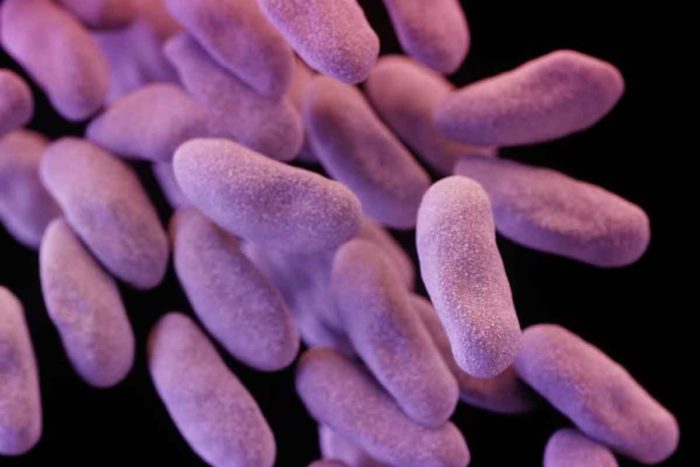$2 million awarded to help prevent antibiotic resistance
Funding is part of $14 million awarded by CDC to curb growing threat
 James Archer/Centers for Disease Control and Prevention
James Archer/Centers for Disease Control and PreventionThis image depicts a family of bacteria called carbapenem-resistant Enterobacteriaceae, which causes infections that are tough to treat because they are resistant to most antibiotics.
Four research teams at Washington University School of Medicine in St. Louis have been collectively awarded nearly $2 million for research aimed at combating the growing threat of antibiotic resistance. The funding focuses on finding new approaches to fight drug-resistant germs, including research to understand how “friendly” microbes that live in and on the human body could be used to prevent infections caused by drug-resistant organisms.
The funding is part of $14 million awarded by the Centers for Disease Control and Prevention (CDC) to 25 academic medical centers as part of the agency’s Antibiotic Resistance Solutions Initiative. According to the CDC, an estimated 2 million people in the U.S. fall ill each year from infections that are resistant to drugs, and 23,000 of them die from those infections.
“Antibiotics are life-saving medicines, but they also can disrupt a person’s microbiome and increase the risk for drug-resistant infections,” said Clifford McDonald, MD, associate director of science for the CDC’s Division of Healthcare Quality Promotion. “To protect people, their microbiomes and the effectiveness of antibiotics, this project is an example of applied research that has the potential to produce innovative public-health approaches to better combat antibiotic resistance.”
Washington University counts antibiotic resistance as one of its major research strengths, said Jeffrey Henderson, MD, PhD, an assistant professor of medicine and of molecular microbiology. “The CDC grants build upon this.”
Henderson is principal investigator of a $498,427 grant included in the $2 million total. He will lead a group of clinicians, chemists and mathematicians to identify how diet, metabolism and intestinal microbes interact to protect against gastrointestinal infections with a nasty bacteria called Clostridium difficile. Such infections can occur after prolonged antibiotic use and can cause severe diarrhea, fever, intestinal pain and, in some cases, death.
“Clostridium difficile infections are an urgent medical problem that are often, paradoxically, caused by antibiotic use and are difficult to treat,” Henderson said. “We have an opportunity to learn from our patients who were at risk of Clostridium difficile infection yet didn’t become ill.”
In addition to Henderson’s research, the following three projects will be conducted by Washington University researchers at Barnes-Jewish and St. Louis Children’s hospitals:
- A $490,499 award to research the long-term effects of early-life antibiotic therapy in premature babies, with a focus on understanding how the drugs affect the development of the gut microbiota and the mobility of antibiotic-resistance genes. The principal investigator is Gautam Dantas, PhD, an associate professor of pathology and immunology, of biomedical engineering and of molecular microbiology.
- A $449,417 award to understand the extent and duration of microbiome disruptions observed during and after usual courses of antibiotics used to treat community-acquired pneumonia. The principal investigator is Jennie H. Kwon, DO, an instructor of medicine.
- A $492,529 award to analyze data in medical records to identify hemorrhages related to the use of blood thinners, their risk factors and optimal treatments. The principal investigator is Brian Gage, MD, a professor of medicine.
“Antibiotic resistance is a critical global public-health issue,” Kwon said. “The major risk factor for the development of drug-resistant organisms is the overuse of antibiotics. A better understanding of how antibiotics alter the microbiome is necessary to guide future efforts to prevent the spread of drug-resistant germs and encourage more effective antibiotic stewardship.”






